Bernie Sanders Drops Out of 2020 Presidential Race
The 2020 presidential nominee pool started off crowded with names both famous and not. Here, get to know a bit about every person who has thrown their hat into the race.
Joe Biden (D)

Joe Biden announced his run for president after months of speculation—and months of him leading the Democratic polls. The former senator from Delaware is arguably the 2020 Democratic candidate with the most name recognition after serving as vice president under President Barack Obama for two terms. In his announcement video, Biden said that Trump is a “threat to this nation” unlike any he had seen in his lifetime and said that history will look back on the Trump administration as an “abhorrent moment in time.”
Donald Trump (R)
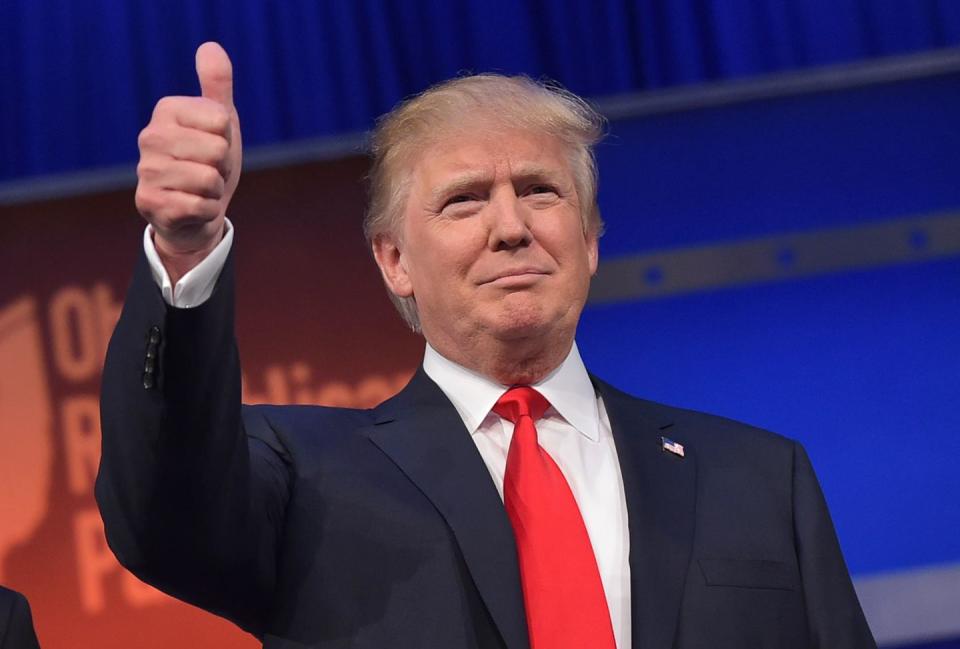
You already know him, and you probably have some strong feelings about him. Donald Trump is currently the president of the United States, and it's no secret that he'll be running for a second term. At the time of publication, Trump has already hired more than 30 full-time staffers for his 2020 campaign, according to Politico. Start planning your drinking game: Take a shot every time Trump mentions the border wall on the campaign trail.
Bernie Sanders (D)

This was the second time Sanders, who's currently a Vermont senator, has run for president, having lost to Hillary Clinton in the Democratic primary in 2016. Sanders is a self-described democratic socialist who has been credited for pushing the party further to the left, including championing policies like Medicare for all, a $15 federal minimum wage, and free college tuition. Sanders suspended his campaign in on April 8, meaning Joe Biden is the presumptive Democratic nominee.
Bill Weld (R)
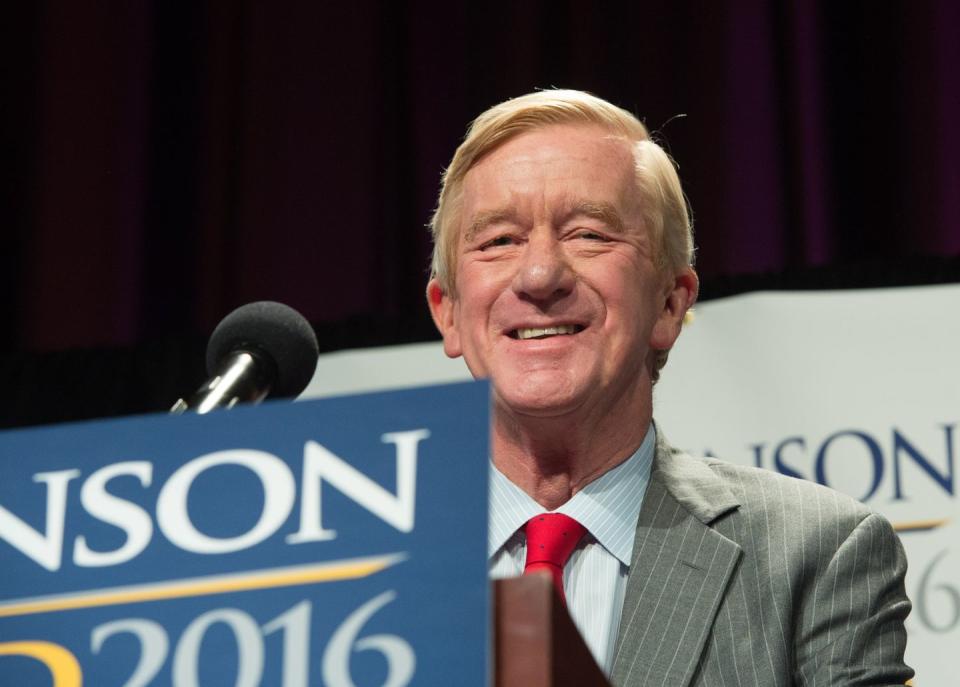
Former Massachusetts governor Bill Weld was President Trump's first challenge for the Republican nomination. In 2016, Weld ran for vice president as a Libertarian, and according to FiveThirtyEight, he has supported gay rights and abortion in the past. He ended his campaign in March.
Joe Walsh (R)
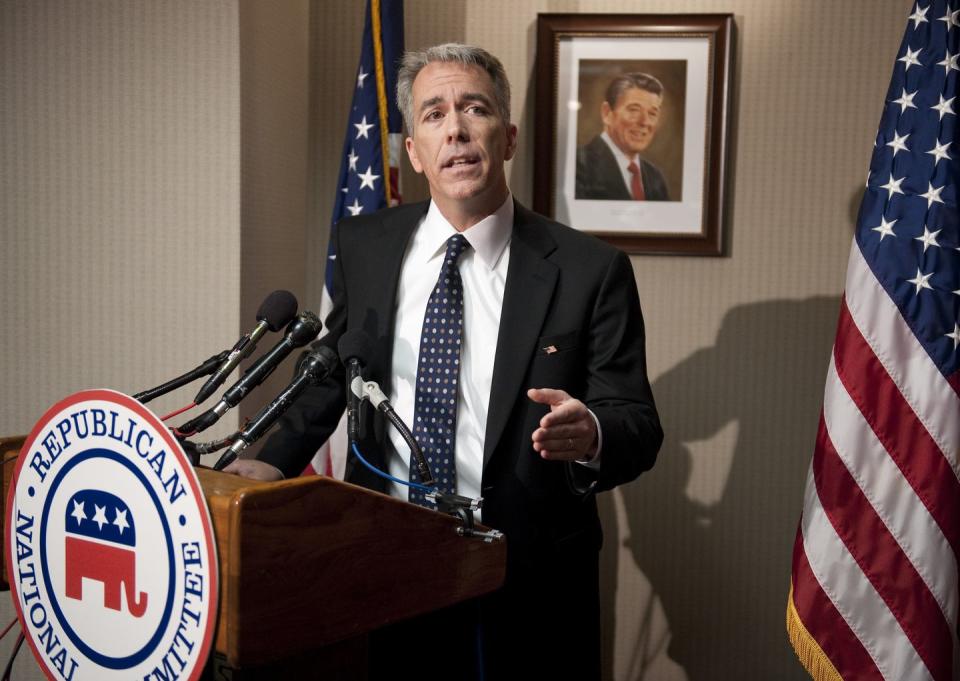
Shortly after penning an op-ed for the New York Times titled “Trump Needs a Primary Challenge,” former Illinois Tea Party congressman Joe Walsh became the second Republican to launch a primary challenge against President Trump for 2020. Walsh served one term in the House of Representatives from 2011 to 2013 before becoming a conservative talk radio host, and he's been known to make racist, sexist, incendiary remarks about politicians, including President Obama and Sen. Kamala Harris.
Walsh, who previously supported Trump, told ABC News, “I helped create Trump. There’s no doubt about that. The personal, ugly politics, I regret that. And I’m sorry for that.” He said, "I'm running because he's unfit. Somebody needs to step up and there needs to be an alternative.” He ended his campaign in early February.
Tulsi Gabbard (D)
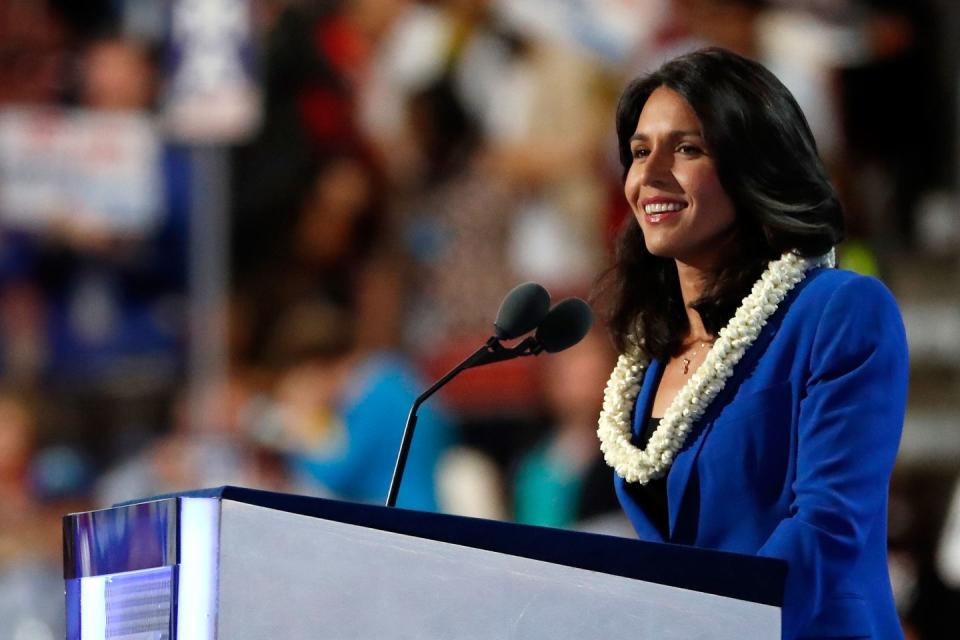
Gabbard, who's 38, currently serves as a congresswoman from Hawaii and is an Iraq war veteran and a former Bernie Sanders supporter. She's outspoken about combating climate change, avoiding American military intervention, and positioned herself as a controversial figure in the Democratic Party. Gabbard dropped out in March, though she stayed in the race longer than any other low-polling Democratic candidate. She will now be endorsing Joe Biden.
Elizabeth Warren (D)
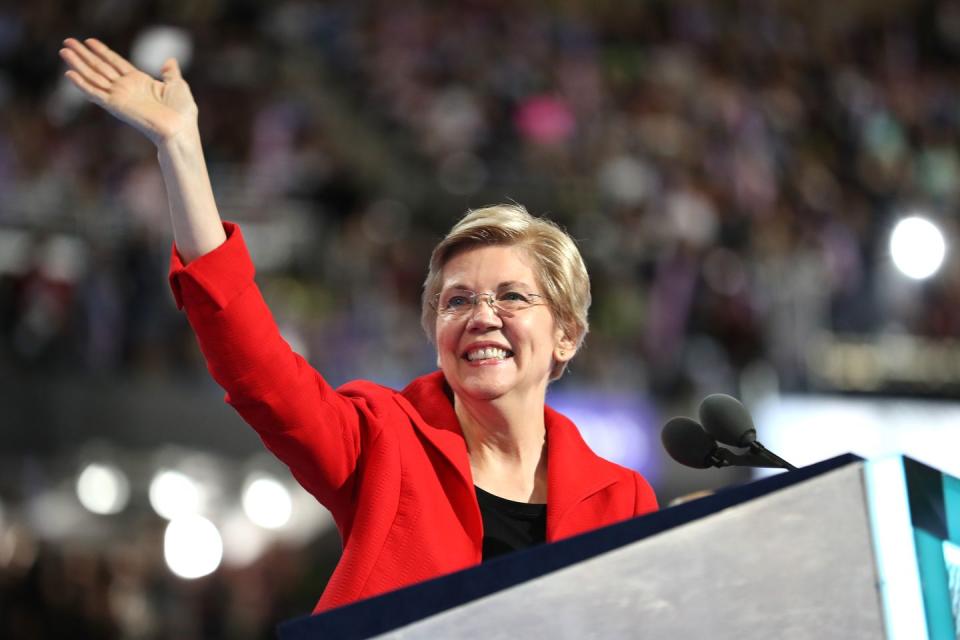
Warren was the first major candidate to enter the running to become the Democratic Party's 2020 presidential nominee. The Massachusetts senator made a name for herself during the 2008 financial crisis when she oversaw the bank bailouts and went onto to create the Consumer Financial Protection Bureau. Throughout her campaign, she ran on a platform of universal child care, affordable healthcare, and a tax on the ultra-wealthy. Soon after Super Tuesday, Warren dropped out, telling her campaign staff, "I may not be in the race for President in 2020, but this fight—our fight—is not over. And our place in this fight has not ended."
Michael Bloomberg (D)
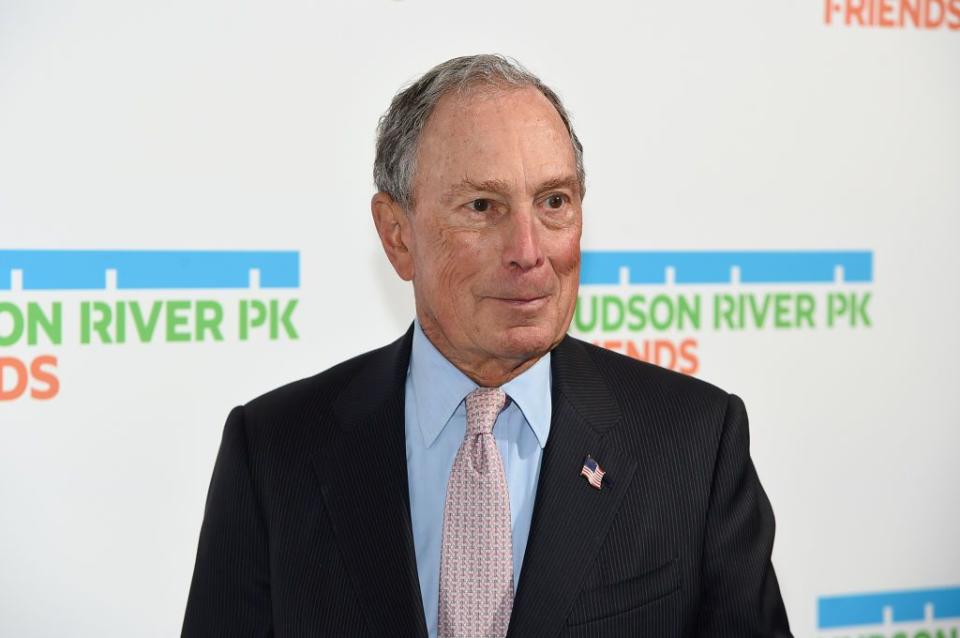
In late November, former New York City mayor Michael Bloomberg announced he would be entering the presidential race. In a statement, Bloomberg said he was joining the race "to defeat Donald Trump" and "rebuild America." The billionaire ran for about three months, spending hundreds of millions on his campaign. He left the race after a poor showing on Super Tuesday (he only won in American Samoa) and announced he would instead be endorsing former Vice President Joe Biden.
Amy Klobuchar (D)
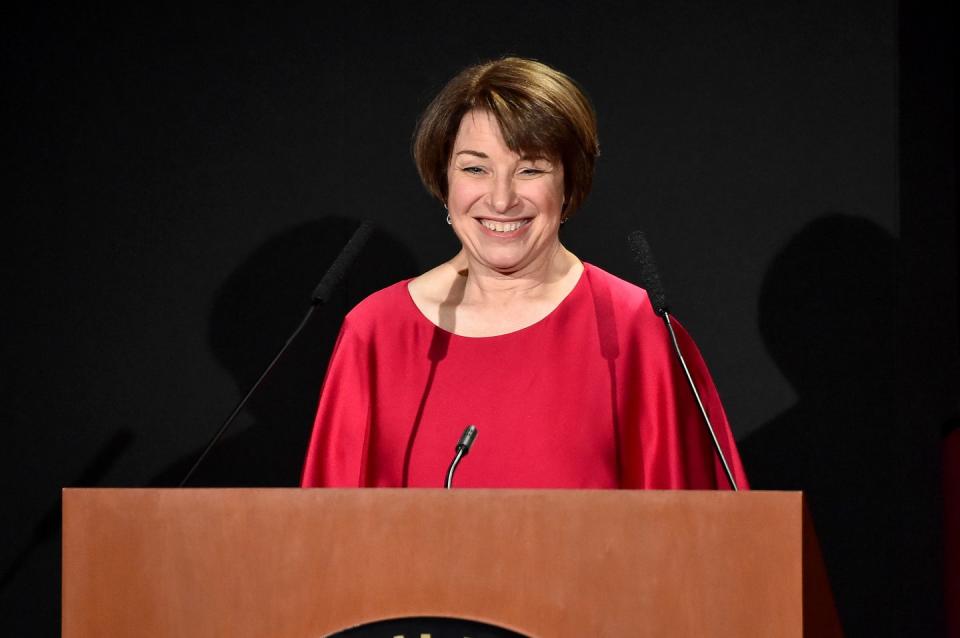
Minnesota Senator Amy Klobuchar has a track record of racking up votes in middle America and is known to boast bipartisanship, as opposed to a more radical left-leaning platform. As her campaign unfolded, there were numerous reports from former staffers that Klobuchar is a difficult boss, to which she said, "I have high expectations for myself, I have high expectations for the people that work for me, but I have high expectations for this country."
Though she had a third-place finish in the New Hampshire primary, Klobuchar decided to drop out shortly before Super Tuesday and will reportedly be endorsing Joe Biden.
Pete Buttigieg (D)
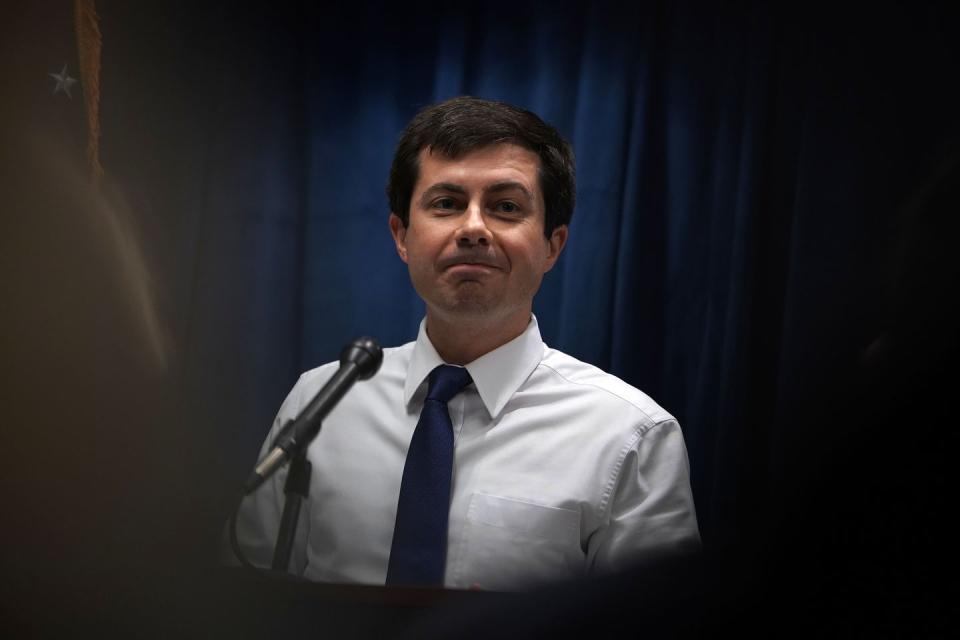
If elected, Buttigieg would have been the youngest president ever at just 38 years old. The former mayor of South Bend, Indiana, Buttigieg is also an Afghanistan war veteran, and became the first openly gay presidential candidate from a major party. While he won the Iowa caucuses, Buttigieg dropped out of the race after a disappointing loss in South Carolina's primary and just days before Super Tuesday. According to the New York Times, Buttigieg said "he was concerned about the impact he would have on the race by staying in, saying Democrats needed to field 'the right kind of nominee' against Mr. Trump."
Deval Patrick (D)
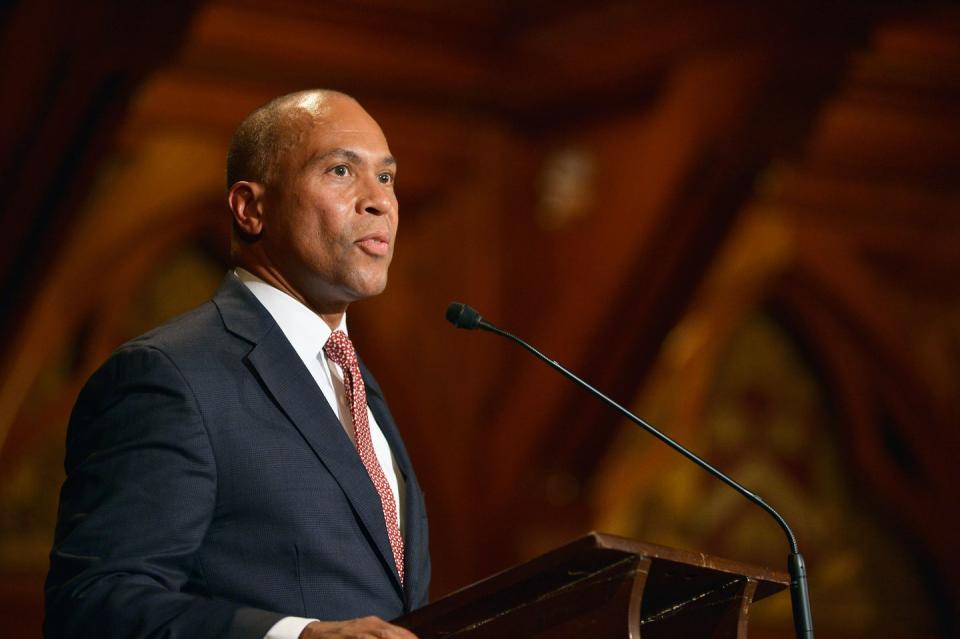
Less than three months out from the Iowa caucuses and the New Hampshire primary, former Massachusetts governor Deval Patrick entered the 2020 race. The night before he announced, Patrick told the Boston Globe, "I recognize running for president is a Hail Mary under any circumstances. This is a Hail Mary from two stadiums over."
However, after the New Hampshire vote, Patrick announced he would be suspending his campaign. Patrick was governor from 2007 to 2015, and not only was he the state's first black governor, but also the second elected black governor in the nation's history. (He's also friends with former President Barack Obama.) Patrick went on to work as a Bain Capital executive, and while he originally decided not to run for president, he later said he regretted not getting into the race.
Tom Steyer (D)
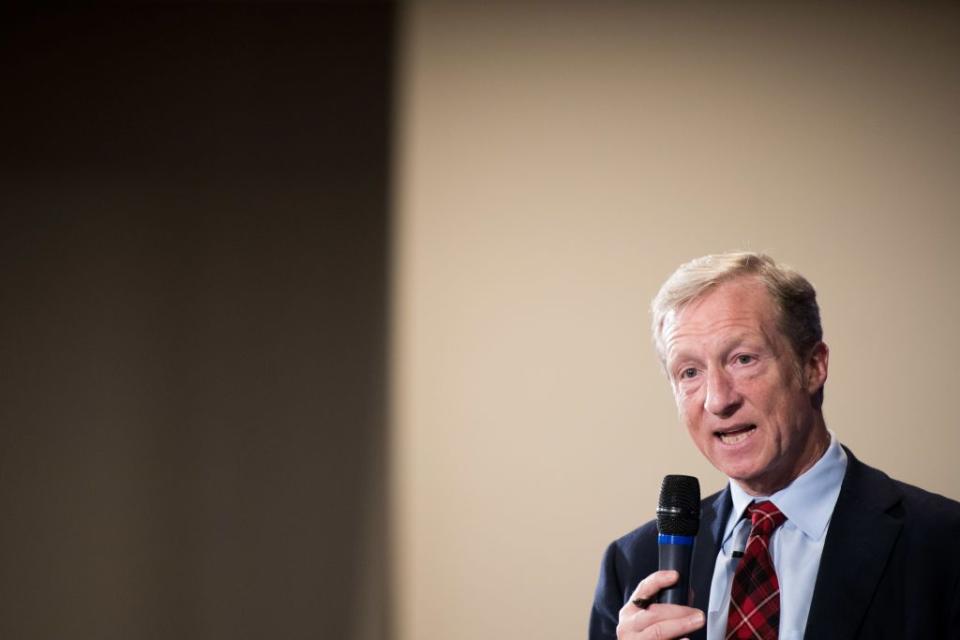
Billionaire and former hedge fund investor Tom Steyer made an unexpected late entry into the race after spending months rallying for impeachment, often to the consternation of party leadership. Steyer is a major Democratic donor, having spent $90 million in the 2016 election. For his presidential run, Steyer has pledged to spend "at least $100 million" to reach voters with a populist message that takes aim at big corporations and Washingtonian corruption. Steyer has not served in public office before; until 2012 he was co-senior managing partner of Farallon Capital, which he also founded. He and Kat Taylor, his wife, signed the Giving Pledge and started the environmental advocacy group NextGen America, among many other philanthropic initiatives.
Following the results of the South Carolina primary on February 29, Steyer announced he was pulling his bid for the presidency.
"We live in a country that is deeply unjust economically where rich people have been profiting at the expense of everybody else," he said. “And I didn’t get in this race and start talking about things to get votes. I was in this race to talk about things that I cared the most about.”
Andrew Yang (D)

Yang is a seasoned businessman who founded the Venture for America nonprofit, which aims to assist young entrepreneurs. While he didn't come into the race with any political experience, he often touted his proposal for a universal basic income of $1,000 for all Americans over the age of 18. Though Yang did garner a group of devoted voters throughout his campaign, before the New Hampshire primary results were officially reported, he announced he would be dropping out of the race. He said, "I am the math guy, and it’s clear from the numbers we’re not going to win this campaign."
Michael Bennet (D)
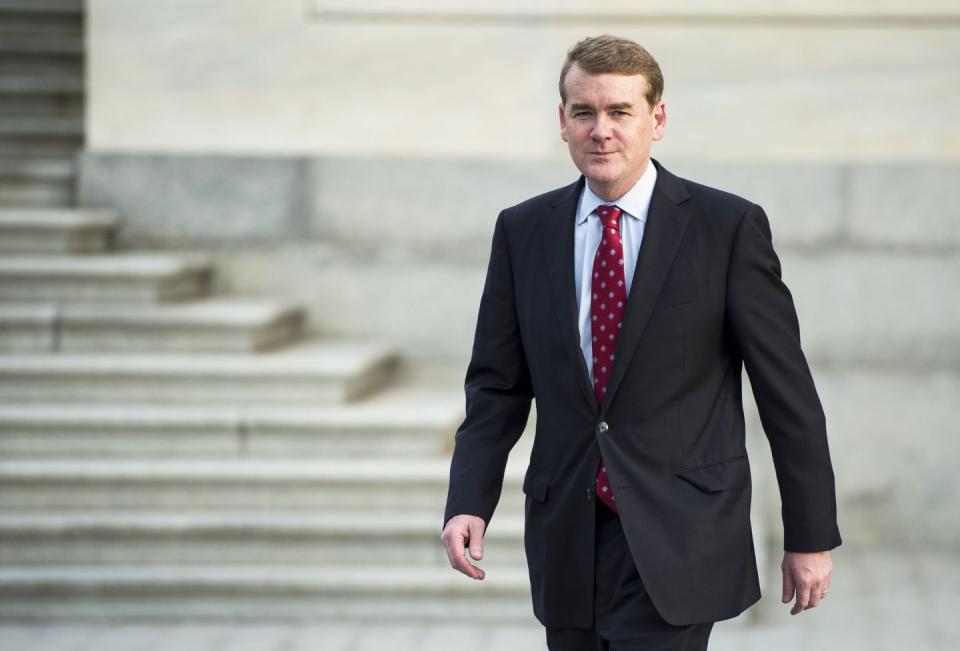
In early May, Colorado Senator Michael Bennet announced his run for the 2020 presidency during an interview on CBS This Morning. The announcement was delayed due to the senator being diagnosed with prostate cancer in April, though Bennet has now had successful surgery and requires no further treatment.
Bennet has been in the U.S. Senate since 2009. Before then, he spent time as the director of an investment company, the chief of staff to then-Denver Mayor John Hickenlooper, and as the superintendent of the Denver Public School system. On the day of the New Hampshire primaries, Bennet decided to exit the race.
John Delaney (D)

The former three-term Maryland congressman, who started running for president in 2017, has dropped out just days before the Iowa caucuses. According to CNN, Delaney said he wanted to make sure moderate candidates had the opportunity to do well in Iowa, saying, “My support is sufficient enough to take from other more moderate candidates, and I just don't want to do that.” In a statement about his exit, Delaney wrote, "Step one is to beat Donald Trump and restore decency to the Office of the President. In many ways, this is all that matters and I am fully committed to supporting our nominee and fulfilling that mission."
Cory Booker (D)

The New Jersey Senator entered the race at the start of Black History Month, declaring, "I believe that we can build a country where no one is forgotten, no one is left behind." Booker is the former "super mayor" of Newark, where he once famously saved a woman from a burning building. A well-known Democrat, Booker is for a federal jobs guarantee, Medicare for all, combating the affordable housing crisis, and he introduced a bill that would essentially create a federally-funded savings account for every American child. He exited the race in January after failing to qualify for two consecutive debates. As the New York Times reports, Booker is the latest candidate of color to leave a pool that was once lauded as the most racially diverse in the history of Democratic primaries.
Marianne Williamson (D)
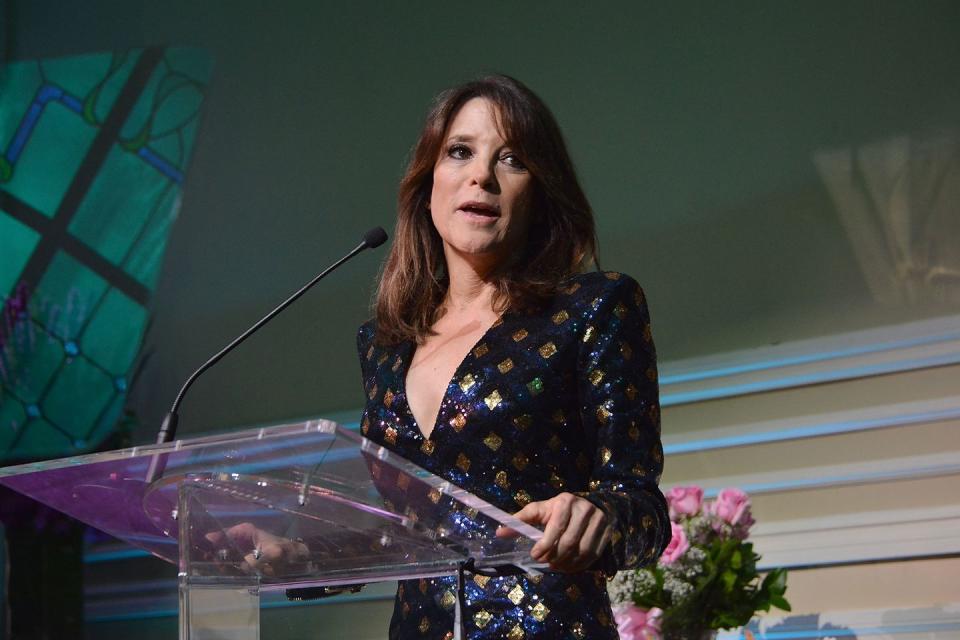
Williamson was not a career politician, but rather an author, self-help guru, former Kardashian-approved congressional candidate, AIDS activist, and Oprah's spiritual friend. Her exit in early January came after she failed to qualify for several debates and was polling last among Democratic candidates. In her letter explaining her decision to drop out of the race, she wrote, "I learned many things about America during this campaign. I’m more convinced than ever that we’re a good and decent people, that democracy matters, and that what our country has always stood for is worth struggling for."
Julián Castro (D)

Castro entered the race for president with a substantial political resume: He was the former mayor of San Antonio, Texas, as well as the Secretary of Housing and Urban Development under President Obama. (In 2016, he was also in the running to be Hillary Clinton's vice president.) But in January 2020, after failing to gain traction in the polls, Castro dropped out of the race, telling voters in a video that "it simply isn’t our time.” Castro was the only Latino candidate in the Democratic race and was outspoken about his ideas for immigration reform, police reform, and universal pre-kindergarten.
Kamala Harris (D)
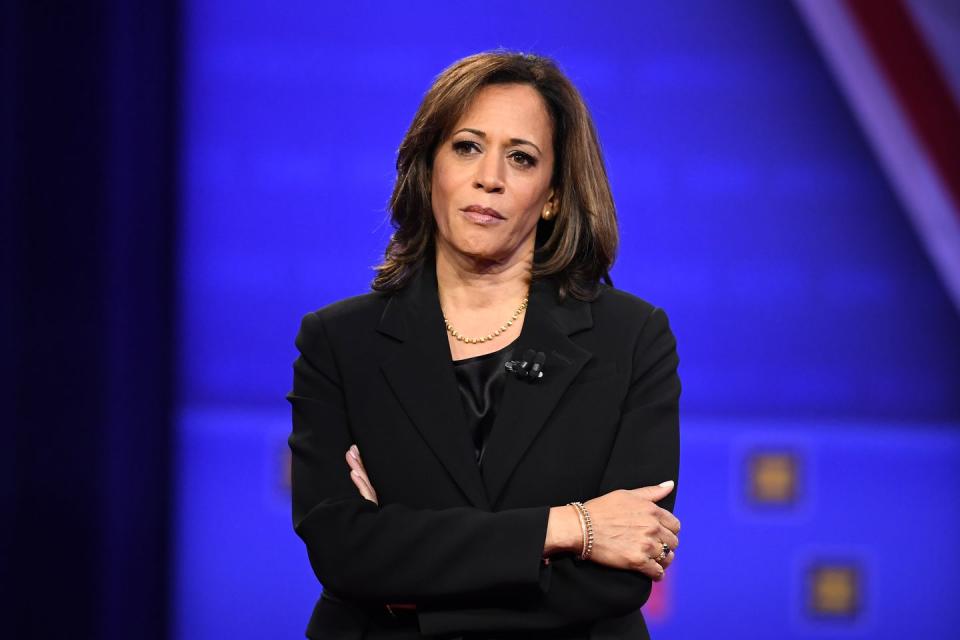
The former California Attorney General and current California senator seemed like a promising front-runner in the race to become the Democratic Party's 2020 presidential nominee. Had Harris secured the nomination, she would become the first African-American woman to be a major party’s nominee for president. Harris has supported Medicare for all, proposed giving a tax credit to the middle class, and planned to combat the affordable housing crisis. However, she also had to contend with—and continuously answer for—her controversial record as a prosecutor. Harris bowed out of the race in December, but on March 8, she endorsed Joe Biden, who is running as a moderate Democrat. "@JoeBiden has served our country with dignity and we need him now more than ever," she wrote in her tweet announcing the news. "I will do everything in my power to help elect him the next President of the United States."
Steve Bullock (D)

Montana governor Steve Bullcok dropped out in December, explaining in a statement that he was unable "to break through to the top tier of this still-crowded field of candidates." Bullock, who was born and raised in Montana, worked for Montana's secretary of state and then the state's Department of Justice, according to CNN. He successfully ran for attorney general in 2008 and then ran for governor in 2012. He won re-election in 2016, becoming a Democratic governor in a Trump-won state.
Joe Sestak (D)

Former Pennsylvania congressman Joe Sestak joined the presidential race in June, much later than many other candidates due to his daughter's fight with brain cancer. (She has since beaten the cancer.) Sestak is a former Navy admiral and served in the military from 1974 to 2005, according to the New York Times. He won his bids for Congress in 2006 and 2008 but then went on to lose the election for a U.S. Senate seat in 2010. Sestak also served on President Bill Clinton's National Security Council staff as well as the deputy chief of naval operations for warfare requirements. He left the race in December.
Beto O'Rourke (D)

O'Rourke gained a national platform after he went up against, and ultimately lost to, incumbent Ted Cruz for Texas' open senate seat in the 2018 midterm elections. As someone who used to represent a district on the border, O'Rourke has been outspoken about his views on immigration, saying that America does not need a border wall and that he supports DREAMers. He dropped out of the race in November.
Wayne Messam (D)
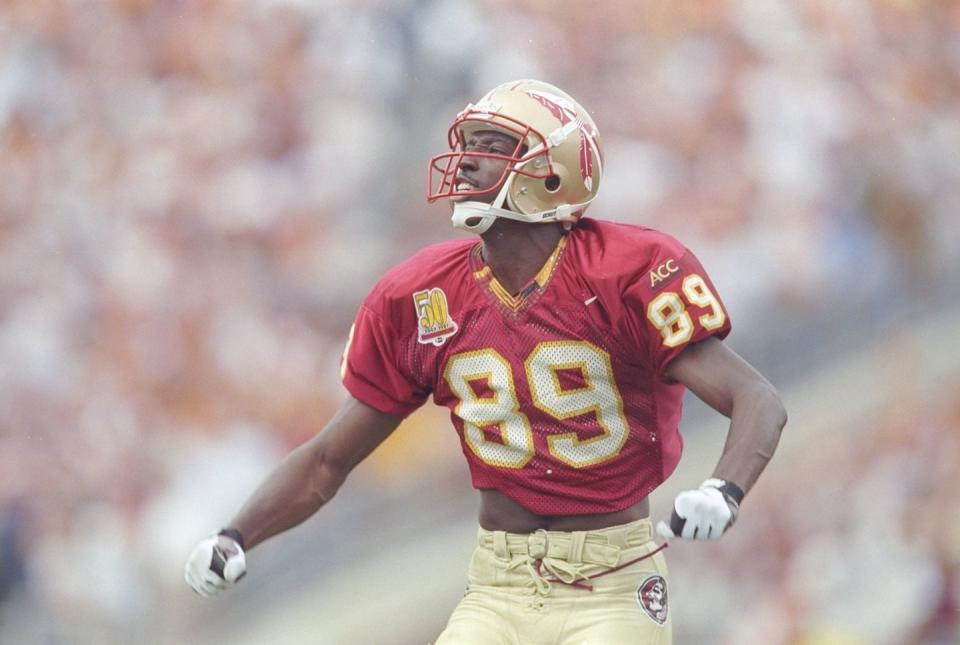
Wayne Messam entered the race in March, becoming one of several mayors to vie for the 2020 Democratic spot. He's been the mayor of Miramar, Florida since 2015 and was the first African American mayor of his city. You might also know him from his time playing football for Florida State University, where he helped the team win a National Championship. After failing to qualify for any of this year's primary debates, Messam left the race in November.
Mark Sanford (R)

Former South Carolina governor Mark Sanford announced in early September he'd be joining the 2020 race, becoming another primary challenger for Trump. Sanford, who has served as both as congressman for the state's 1st congressional district and as the governor, told Fox News, "We need to have a conversation about what it means to be a Republican." He went on to say he believes the Republican Party has "lost our way" and emphasized the need to have a national conversation about debt. He ended his campaign a short two months later.
Eric Swalwell (D)
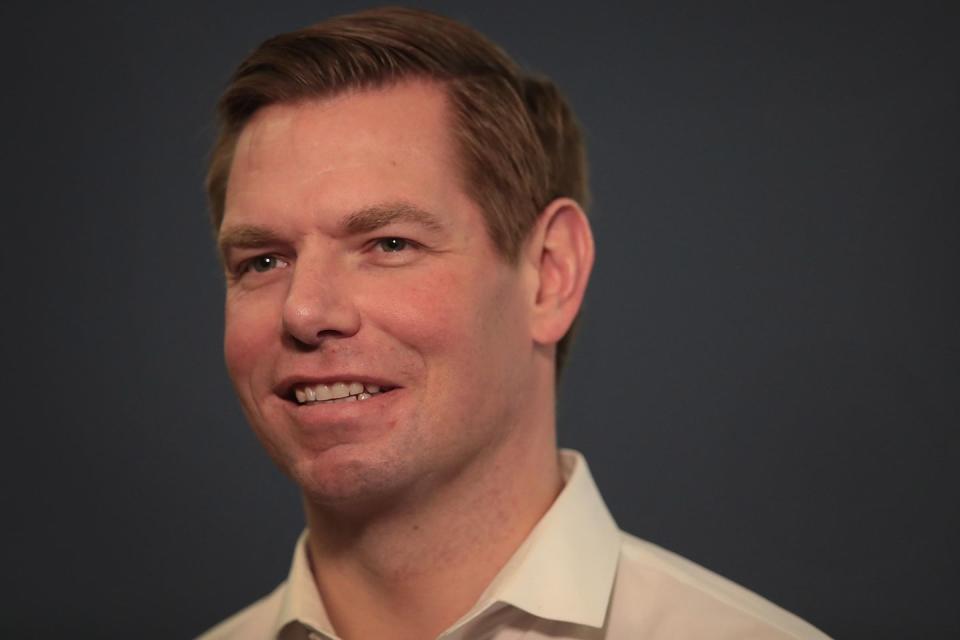
In April, California congressman Eric Swalwell announced on The Late Show With Stephen Colbert that he'd be running for president in 2020. However, in early July, he became the first Democratic candidate to officially drop out.
The Iowa native and former prosecutor has been in the House of Representatives since 2013 and is now part of the House Intelligence Committee and the House Judiciary Committee. In an interview with Esquire, Swalwell spoke out his priorities entering the race, saying, "I'm going to be an aspirational candidate who believes that in our lifetime we could have 100 percent renewables when it comes to energy; that in our lifetime we could have publicly financed campaigns; that in our lifetime we could buy back and ban every single assault weapon."
John Hickenlooper (D)
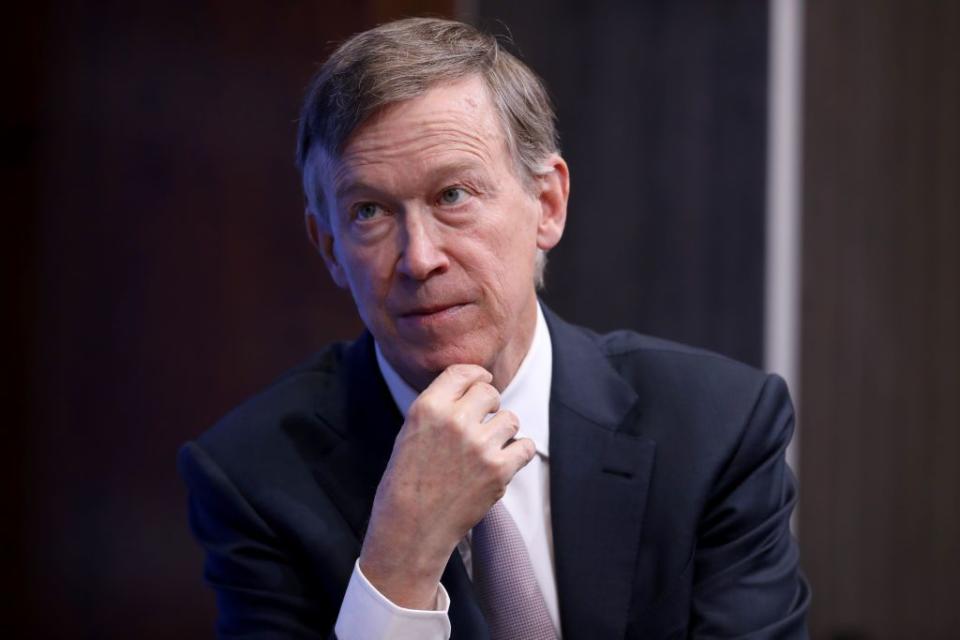
John Hickenlooper, the former governor of Colorado, entered the race in March, saying in his campaign video that he's running for president "because we're facing a crisis that threatens everything we stand for." In the video, he lists some of his accomplishments as governor, including expanding Medicaid, strengthening the economy, passing gun control legislation, and creating tough methane emissions regulations. Before becoming governor, Hickenlooper was the mayor of Denver, as well as a geologist and the owner of a local brewpub. He then dropped out of the race in August.
Jay Inslee (D)
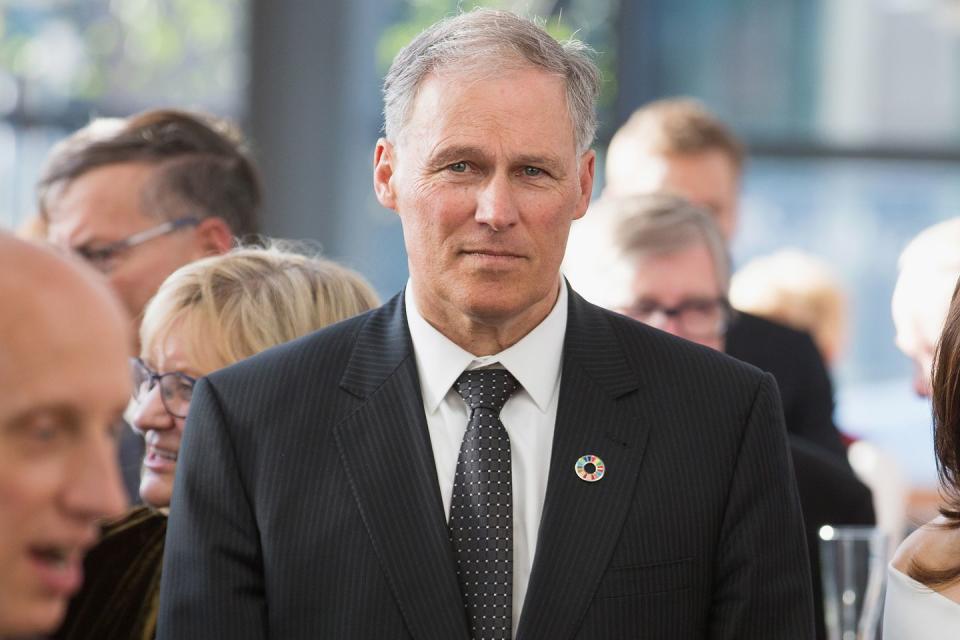
Jay Inslee, the current governor of Washington, joined the race with a clear message: Climate change would be his top priority. The environment was the sole topic of his announcement video, where he declared, "Our country's next mission must be to rise up to the most urgent challenge of our time: defeating climate change." He was the first governor to enter the race and came with years of experience in the U.S. House of Representatives as well as the Washington House of Representatives. He dropped out in late August.
Kirsten Gillibrand (D)

The New York Senator announced her presidential run on The Late Show With Stephen Colbert, saying, "As a young mom, I'm going to fight for other people's kids as hard as I would fight for my own." In recent years, Gillibrand has made a name for herself by being adamantly anti-Trump (she has voted against his Cabinet appointees more than any other senator) and for being an advocate for sexual assault survivors. She dropped out of the race on August 28, writing on Twitter, "To our supporters: Thank you, from the bottom of my heart. Now, let's go beat Donald Trump and win back the Senate."
Bill de Blasio (D)
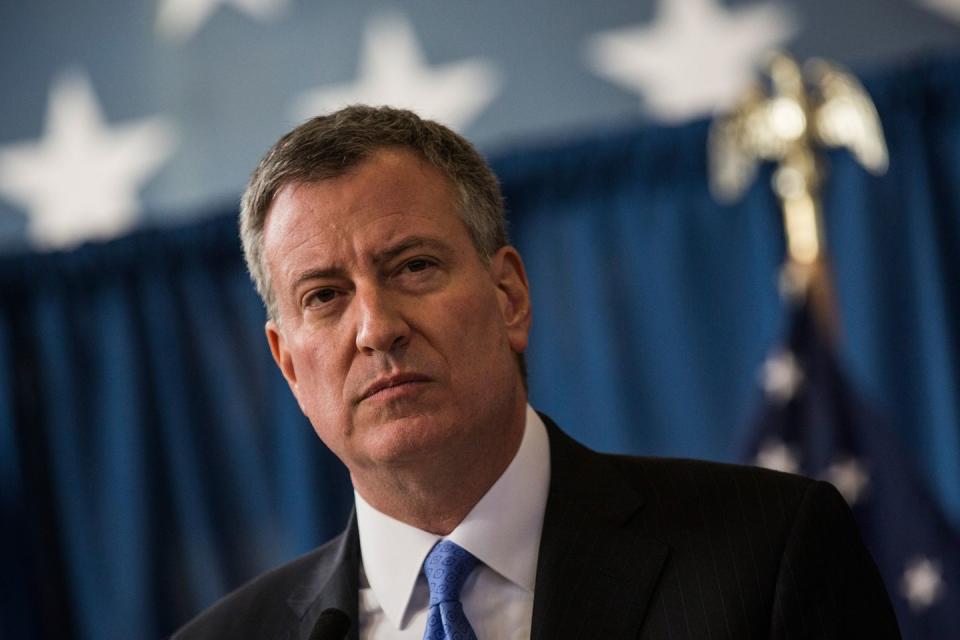
New York City mayor Bill de Blasio released his own campaign video titled “Working People First,” where he touted his accomplishments as NYC's mayor, including a $15 minimum wage, guaranteed paid sick leave, and free pre-K. In his announcement video, he said, "I will not rest until this government serves working people… Donald Trump must be stopped. I’ve beaten him before, and I will do it again." However, in mid-September, he announced he'd be dropping out of the race. He said, "I feel like I have contributed all I can to this primary election. It’s clearly not my time."
Seth Moulton (D)
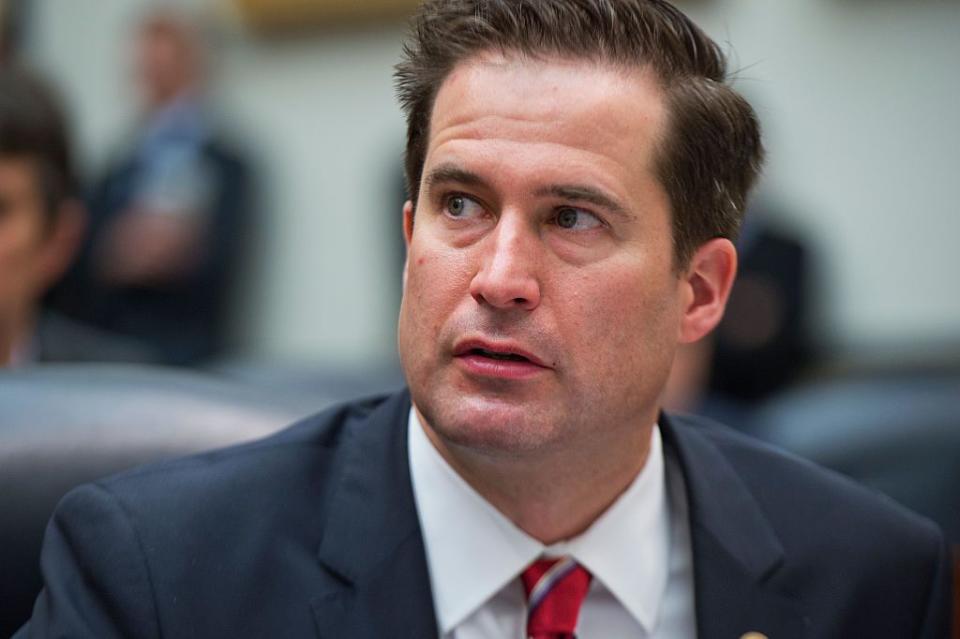
Seth Moulton, the 40-year-old Democratic congressman from Massachusetts, joined the 2020 presidential race with a platform focused on national security. Moulton is an Iraq War veteran who, upon his return to the U.S., decided to run for Congress. He won in 2014, beating out a long-time incumbent in the primary, according to NBC. In his announcement video, Moulton said, "I'm running because we have to beat Donald Trump, and I want us to beat Donald Trump because I love this country. We've never been a country that gets everything right. But we're a country that, at our best, thinks that we might." He announced he'd be leaving the race in August and will instead run for re-election to the House in 2020.
Tim Ryan (D)

Tim Ryan is the current congressman from Ohio's 13th district, and you might know him from his unsuccessful attempt to challenge Nancy Pelosi as the House Democratic leader in 2016. According to Rolling Stone, the Ohio native is a proponent of fair trade policies, clean-tech manufacturing, and investment in Midwest companies. The magazine reports that Ryan said "he plans to be the candidate focused squarely on a national strategy for revitalizing the Rust Belt and other depressed parts of the country." Ryan dropped out of the race in late October.
This post will continue to be updated.
You Might Also Like

